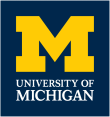About
To create this data infrastructure, the CenHRS project has compiled and integrated contemporaneous HRS employer reports to create job histories for HRS respondents from the time they enter the HRS survey. Using these job histories, the project used machine learning methods to model matching of HRS respondents to their employers in Census’s Business Register (BR) for each wave of the HRS. This model was used to develop a probabilistic crosswalk between the HRS and the BR, incorporating uncertainty from the matching process.
The crosswalk is available to the research community through Federal Statistical Research Data Centers (FSRDCs) so that researchers with Census-approved projects may conduct research and construct new variables using the full scope of Census economic and business data.
In addition to employer information available in the BR, the crosswalk permits linkage of the HRS to other datasets linked to the BR, including summary measures of workforce characteristics from Longitudinal Employer-Household Dynamics (LEHD) data, Form 5500 data, and Census business surveys.
Together, these data include information on, for example, organizational structure, firm size, employment, industry, location, investment, factor inputs, and international transactions. They also include characteristics of the firm’s workforce, including, for example, earnings, age, race, gender, immigrant status, and employment tenure. Linkage of these data to the HRS creates a unique data infrastructure. The HRS includes data on wealth, income, work, demographics, family structure, expectations, health, and cognition; modules on a wide range of economic and health topics; links to other data including Social Security earnings records, company pension plans, and sensitive health data including biomarkers.
The CenHRS Crosswalk is available to approved researchers in the FSRDCs. Researchers interested in using this resource should contact us at [email protected].
Acknowledgements
The development of the CenHRS is supported by a grant from the Alfred P. Sloan Foundation. The HRS (Health and Retirement Study) is sponsored by the National Institute on Aging (grant number NIA U01AG009740) and is conducted by the University of Michigan.


